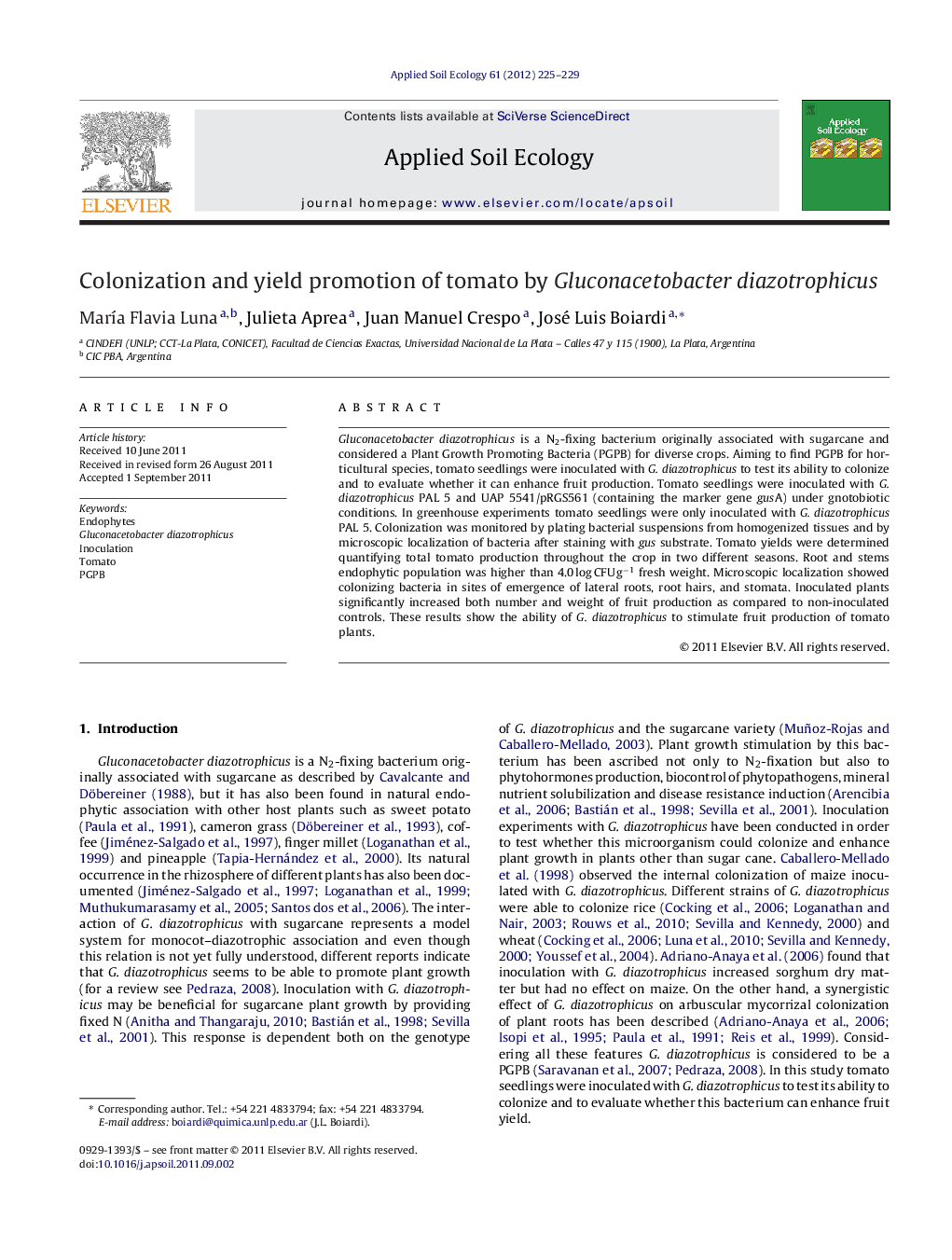| Article ID | Journal | Published Year | Pages | File Type |
|---|---|---|---|---|
| 6297855 | Applied Soil Ecology | 2012 | 5 Pages |
Gluconacetobacter diazotrophicus is a N2-fixing bacterium originally associated with sugarcane and considered a Plant Growth Promoting Bacteria (PGPB) for diverse crops. Aiming to find PGPB for horticultural species, tomato seedlings were inoculated with G. diazotrophicus to test its ability to colonize and to evaluate whether it can enhance fruit production. Tomato seedlings were inoculated with G. diazotrophicus PAL 5 and UAP 5541/pRGS561 (containing the marker gene gusA) under gnotobiotic conditions. In greenhouse experiments tomato seedlings were only inoculated with G. diazotrophicus PAL 5. Colonization was monitored by plating bacterial suspensions from homogenized tissues and by microscopic localization of bacteria after staining with gus substrate. Tomato yields were determined quantifying total tomato production throughout the crop in two different seasons. Root and stems endophytic population was higher than 4.0 log CFU gâ1 fresh weight. Microscopic localization showed colonizing bacteria in sites of emergence of lateral roots, root hairs, and stomata. Inoculated plants significantly increased both number and weight of fruit production as compared to non-inoculated controls. These results show the ability of G. diazotrophicus to stimulate fruit production of tomato plants.
⺠Inoculation of tomato seedlings with Gluconacetobacter diazotrophicus resulted in significant root and stem colonization. ⺠Bacteria were found on the junction of emergence of the lateral roots, root hairs and stomata. ⺠Tomato inoculation with G. diazotrophicus led to a significant increase in fruit production.
